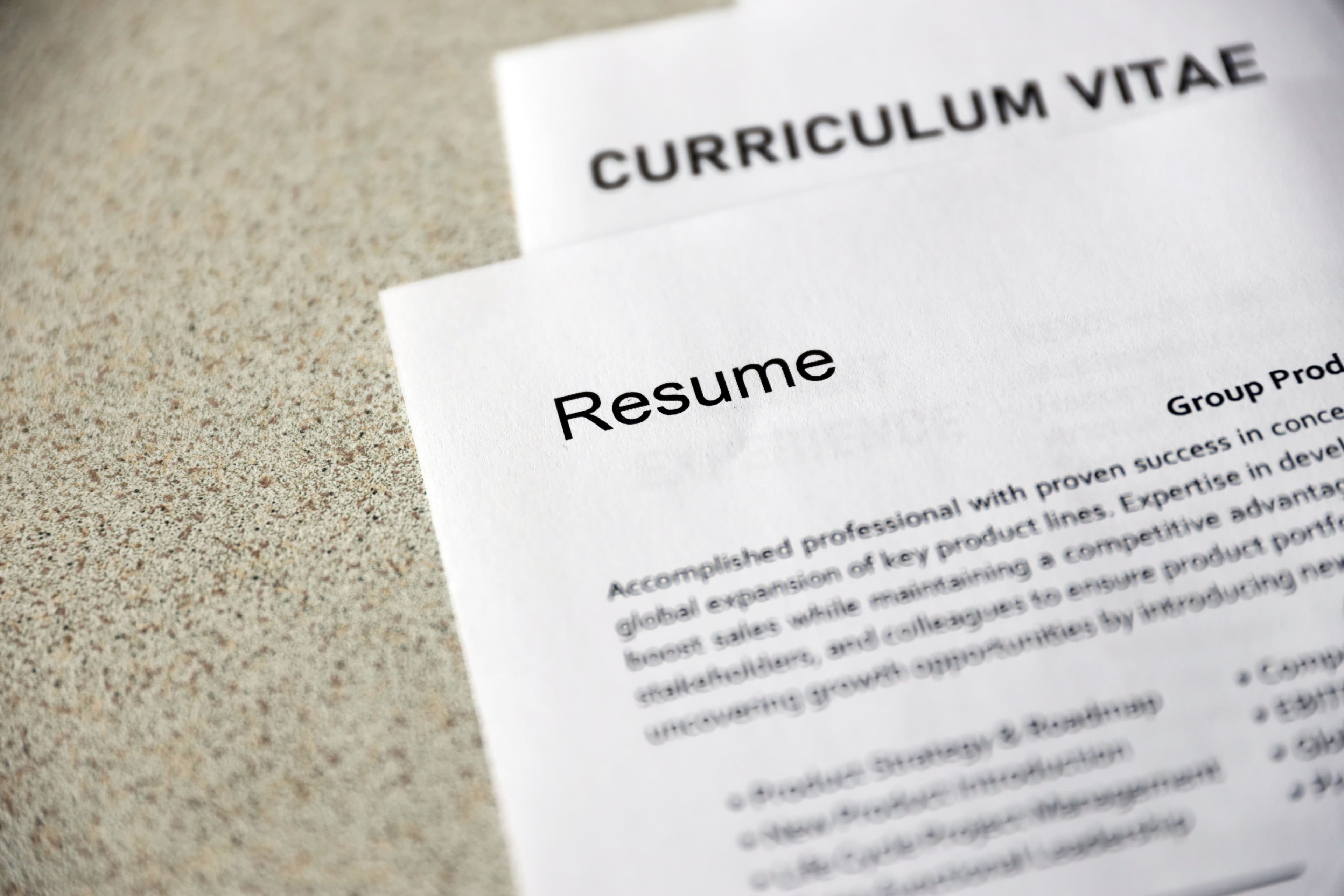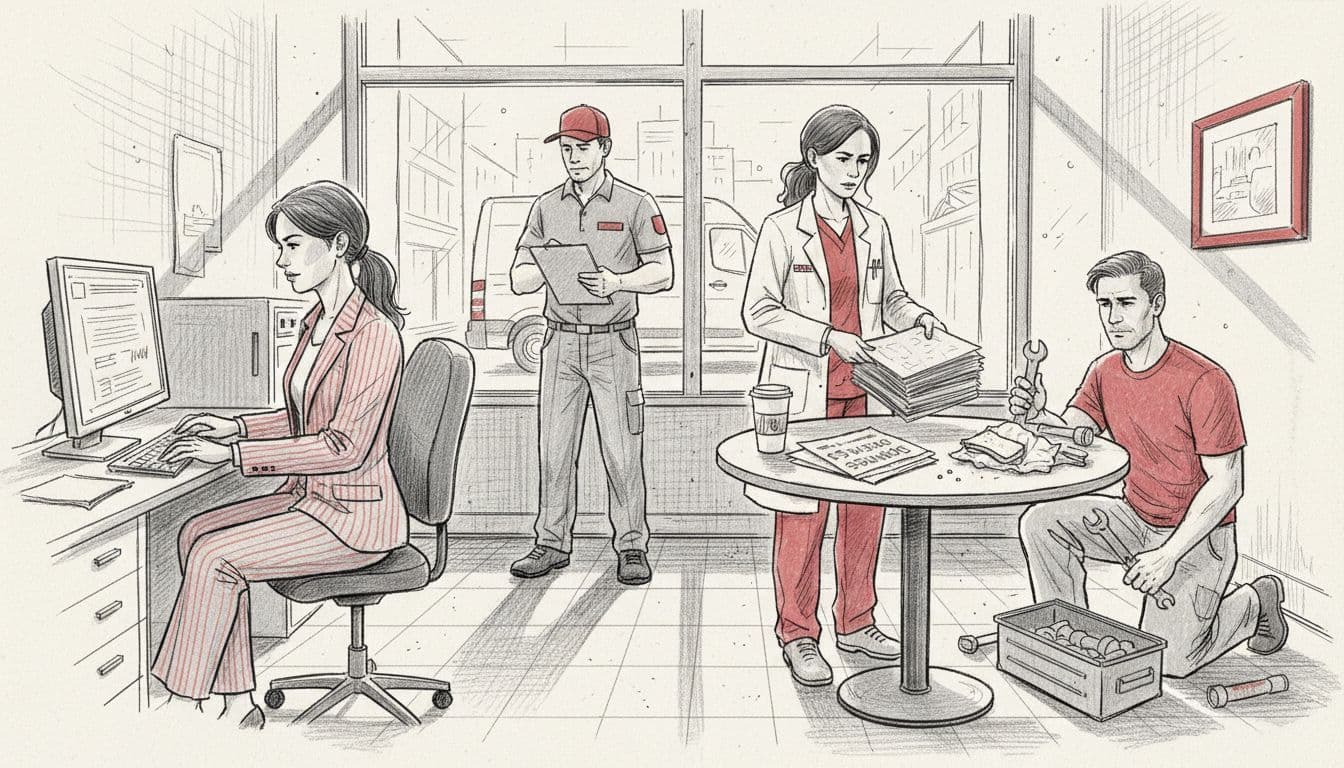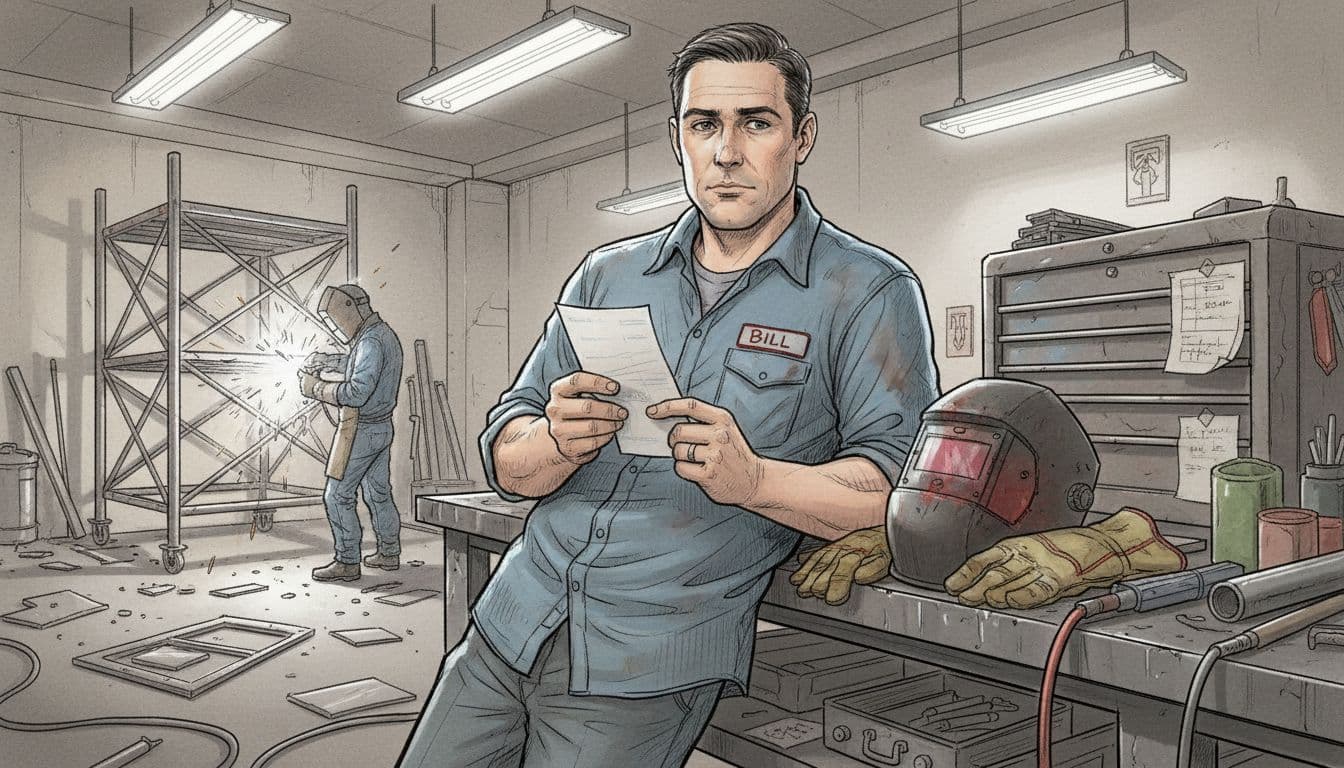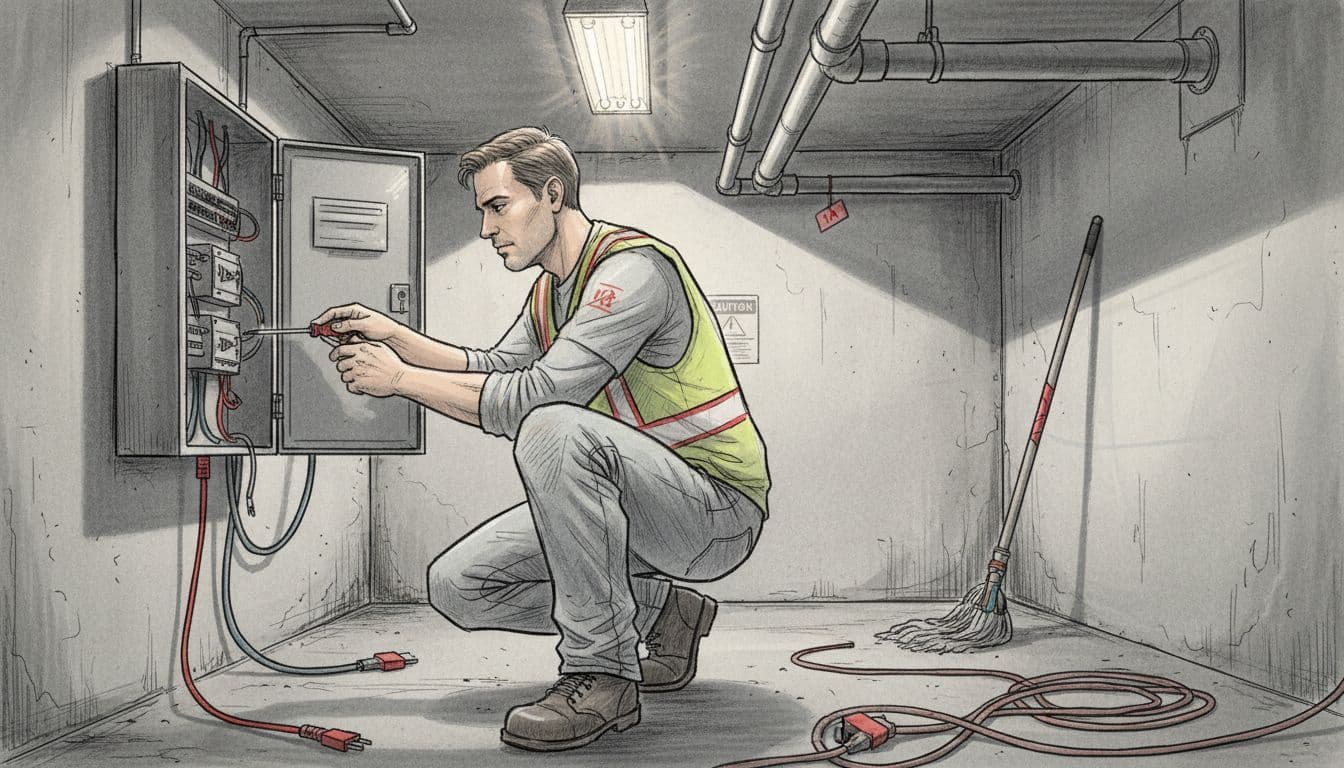Why 'Follow Your Passion' Is Bad Career Advice and What to Do Instead
01.21.2025
Career Exploration

Follow your passion might be the most frequently given – and most problematic – career advice of our time. It sounds inspiring on Instagram and makes for great commencement speeches, but as someone who has navigated multiple career transitions and now helps others do the same, I can tell you: this advice often does more harm than good.
Let me share something important about passion and careers: Some people think that by following your passion, you're going to be having fun every single moment when you're working, and that's just not true. There will be times when you hate your job, and there's going to be times when you hate your passion, and there's going to be times when you love both. You're not always just going to have fun—that's just not how life works.
I know this firsthand. Like many children of immigrant parents, I started on a predetermined path towards becoming a doctor. I spent years at the University of Toronto pursuing a double major in Psychology (Neuroscience) and Biology. But if you'd found me most days, I wasn't in the lab – I was on the basketball court, designing websites, and working at Best Buy. Those years taught me three crucial things: how much I disliked biology, how fascinating the brain is, and how much I loved basketball as I spent the vast majority of my time learning how to hoop.
After graduating with what I'll call an underwhelming Bachelor of Science degree, I found myself juggling multiple jobs just to stay afloat: Working as a manager at a furniture company during the day, racing to Best Buy for my evening shift as a sales associate, and somehow squeezing in time at a startup. It was a grueling 70-hour work week that left me exhausted and financially strained.
The turning point came during a visit from my brother-in-law. He observed my chaotic schedule from afar and, after questioning me about everything in my life and calculating my nominal financial output from those long hours, he gave me some blunt career advice: "This isn't going to cut it. You will be broken down physically and financially in a few years if you continue at this pace."
Harsh, honest, helpful.
That conversation led to a systematic evaluation of potential career paths. We laid out six options:
- Doctor
- Dentist
- Pharmacist
- Optometrist
- Lawyer
- Financial route via MBA
Instead of just following passion, I did something different – I started talking to people. I reached out to professionals in each field, learning about their daily realities, challenges, and satisfactions. I picked the brains of friends and family members, gathering insights about where my skills might flourish most.
After careful consideration, I narrowed it down to law or finance. The legal path won out, not because of some burning passion for law, but because I saw people around me experiencing legal hardships, I had a sister in the profession who could provide realistic insights, and most importantly, it aligned with my analytical skills and personality traits.
Was it the right choice? As I often tell people who come to My Career Shop for advice, there's rarely a single "right" path. But the legal career opened doors I never imagined. It transformed my financial reality, freeing me from the constant strain of living paycheck to paycheck and enabling me to pursue interests and projects I'd previously only dreamed about. The profession gave me something invaluable: a hard-earned skill set that continues to grow in value and creates real impact. Most importantly, it granted me choice – the freedom to shape my career path on my own terms.
None of this would have been possible without my brother-in-law's intervention and candid career advice, which completely changed my life's trajectory. From commercial litigation to technology transactions, and eventually to helping others navigate their own career journeys, that one conversation sparked a chain of events that led me to where I am today..
This experience taught me something crucial: career satisfaction doesn't come from following pre-existing passion – it comes from a more complex interplay of skills, market demand, and personal growth. That's why I created My Career Shop, to help others avoid the trap of oversimplified advice and find careers that are both practically viable and personally fulfilling.
The Problems with the Passion Myth
The "follow your passion" narrative has become deeply embedded in our career culture, but mounting evidence suggests this advice is not just impractical – it can be actively harmful. Let's examine why this well-intentioned guidance that often leads people astray.
1. Passion Doesn't Guarantee Success (Or Income)
Recent research reveals a troubling pattern in passion-driven careers. Scott Galloway, professor at NYU's Stern School of Business, points out a stark reality: "If someone tells you to follow your passion, it means they're already rich. And, typically, they made their fortune in some unglamorous industry like iron ore smelting." He notes that even prestigious brands like Chanel, despite their enormous profit margins, have historically relied on unpaid interns. Why? Because they can. As Galloway puts it, "Follow your passion is Latin for prepare to be exploited.”
The statistics are sobering:
- Only 2% of professional actors make a living from their craft
- Half of all visual artists earn less than 10% of their income from their art
- The top 3% of YouTube channels receive 85% of all views on the platform
Passion alone just isn’t the recipe for a secure financial future.
2. Passion Can Blind Us to Market Realities
Mark Cuban, successful entrepreneur and investor, offers a particularly clear-eyed view:
"I used to be passionate about being a baseball player. Then I realized I had a 70-mile-per-hour fastball. I used to be passionate about being a professional basketball player. Then I realized I had a 7-inch vertical. If I followed my passion, I'd still be trying to play professional basketball.”
Through my many interviews with professionals on the My Career Shop podcast, we've seen this pattern repeat.
3. The Passion Paradox
Research from Current Psychology reveals an interesting paradox: work passion isn't something you start with – it's something you develop through competence and autonomy. This aligns with what we've observed through My Career Shop's professional interviews: sustainable career satisfaction comes from:
- Building valuable skills
- Gaining autonomy through expertise
- Contributing meaningful value
- Achieving recognition and growth
Every career takes work — whether or not it’s your “passion.” In terms of an approach that actually drives career success, Mark Cuban emphasizes a different approach:
"The things I ended up being really good at were the things I found myself putting effort into. Many people talk about passion, but that's really not what you need to focus on. You really need to evaluate and say, 'Okay, where am I putting in my time?'"
In other words, passion often develops after you invest your time in becoming good at something. The study in Current Psychology showed that individuals who focused on developing competence and gaining autonomy reported higher levels of career satisfaction than those who pursued pre-existing passions.
The next question becomes, how can we stop focusing on passion?
A Better Framework: The Skills-Market-Lifestyle Alignment
Instead of starting with passion, our research at My Career Shop suggests a more practical framework for career decisions. This approach, backed by both academic research and real-world experience, focuses on three key elements that create sustainable career satisfaction.
1. Start with Skills, Not Passion
Passion typically develops after you become competent at something, not before like many people believe. The Current Psychology study examining the relationship between personality traits and work passion found that competence and autonomy are actually stronger predictors of career satisfaction than pre-existing passion.
When assessing skills, consider three categories:
Natural Abilities:
- What tasks do you perform easily while others find them challenging?
- Which problems do people regularly ask you to solve?
- What activities make you lose track of time?
Developed Competencies:
- Technical skills gained through education
- Soft skills developed through experience
- Knowledge acquired through various roles
Growth Potential:
- Skills you're currently developing
- Areas where you learn quickly
- Capabilities that energize you when improving them
2. Consider Market Demand
Through many professional interviews at My Career Shop, we've identified a crucial pattern in sustainable careers. They exist at the intersection of three factors:
Market Needs:
- Current industry trends
- Emerging opportunities
- Areas of consistent demand
Economic Value:
- Salary potential
- Growth trajectory
- Industry stability
Future Outlook:
- Industry growth projections
- Technology impact
- Regulatory changes
For example, when I interviewed Craig Taylor, cybersecurity expert and founder of CyberHoot said "there are 750,000 unfilled cybersecurity jobs in the US, 4 million globally," highlighting how market demand can create excellent career opportunities regardless of initial passion.
3. Align with Lifestyle Goals
Your career choice should support your desired lifestyle, not consume it. Our research shows successful career transitions often prioritize:
Work Environment Preferences:
- Office culture (collaborative vs. independent)
- Physical setting (office, remote, hybrid)
- Travel requirements
- Schedule flexibility
In my interview with Craig, he also noted: "If you're an outdoorsy person and you need to be with the sun above you... it's probably not a good job for you." Such honest assessments of work environment fit are crucial.
Professional Development:
- Learning opportunities
- Mentorship availability
- Career progression paths
- Skill development resources
Work-Life Integration:
- Schedule demands
- Stress levels
- Personal time respect
- Family compatibility
4. The Integration Process
The key is finding where these three elements intersect:
Short-term Alignment:
- Immediate skill utilization
- Current market opportunities
- Present lifestyle needs
Mid-term Development:
- Skill growth trajectory
- Market trend adaptation
- Lifestyle evolution
Long-term Sustainability:
- Career progression potential
- Industry sustainability
- Life goal compatibility
This framework provides a more reliable path to career satisfaction than simply following passion. It acknowledges that fulfillment often comes from mastery and contribution rather than pre-existing enthusiasm.
Practical Steps to Find Your Career Path
Finding your career path requires more than just introspection – it demands a systematic approach grounded in real-world understanding. Through our work at My Career Shop, we've developed a comprehensive framework that helps professionals navigate career discovery and career transitions effectively.
Understanding Your Professional DNA
The journey begins with a deep understanding of your capabilities. Think of this as mapping your professional DNA – it's not just about listing skills, but understanding how your various abilities connect and complement each other. We encourage professionals to look beyond traditional résumé items to understand their true capabilities.
Start by examining your technical foundation. This includes your formal education, certifications, and specific tools you've mastered, but don't stop there. Consider how you've applied these skills in real-world situations. For instance, that database certification might be less important than your ability to explain complex technical concepts to non-technical teammates.
Your soft skills often prove even more valuable than technical capabilities. Through our interviews with successful professionals, we've found that abilities like effective communication, leadership, and problem-solving frequently determine career success.
Reading the Market Landscape
Understanding market dynamics is crucial for career planning. This goes beyond simply checking job listings – it requires developing a comprehensive view of your chosen industry. The cybersecurity field offers a perfect example, with its massive number of unfilled positions both domestically and globally. These numbers reveal not just job openings, but opportunities for those willing to develop needed skills.
Through our interviews with industry professionals, we've learned how important it is to understand the full scope of industry requirements. Many fields, like cybersecurity, require a combination of formal certifications and substantial practical experience. This dual requirement ensures professionals have both theoretical knowledge and hands-on expertise. Understanding these expectations early in your career planning helps you create a realistic timeline for transition and advancement.
Testing the Waters
Choosing a career or career transitions don't have to be leap-of-faith decisions. We advocate for a gradual approach that begins with information gathering through professional conversations and industry research. This can evolve into hands-on experience through job shadowing or volunteer work, eventually leading to more substantial commitments like internships or contract positions.
The Time Factor
Finding a career or career transitions require patience and strategic timing. Scott Galloway puts it well: "How do you get economic security? There is an answer — that's the good news. The bad news? The answer is . . . slowly". We typically see successful transitions unfold over 12-18 months, allowing time for skill development, network building, and strategic positioning.
Measuring Progress
Success in career transition or finding the ideal career path isn't just about landing a new job. It's about developing competence, building professional relationships, and growing into your new role. Look for signs of progress in your skill development, your professional network's growth, and your increasing clarity about career direction.
Avoiding Common Missteps
Experience has taught us what pitfalls to watch for. Many professionals get stuck in analysis paralysis, endlessly researching without taking action. Others rush forward without adequately preparing, or develop skills without confirming market demand.
The key is maintaining momentum while being strategic. This means taking consistent action, but always with a clear purpose and direction. Whether you're researching your next move, developing new skills, or building your professional network, each step should move you closer to your career goals.
Through this methodical approach, you can navigate career transitions and find your ideal career path with confidence, knowing you're building on solid foundation rather than just following passion. The path may be longer than taking a leap of faith, but it's far more likely to lead to sustainable success.
The Way Forward — Reframing Career Selection
After analyzing hundreds of career trajectories through My Career Shop interviews and research, we've developed a practical framework for making career decisions that lead to both professional success and personal satisfaction. This approach moves beyond the oversimplified "follow your passion" advice to focus on concrete factors that drive career success.
Reframing the Core Questions
The key to effective career planning lies in asking the right questions. Rather than beginning with passion, successful professionals focus on three core areas: skills, market alignment, and lifestyle considerations.
First, examine your skills with brutal honesty. Look for patterns in your life – tasks you complete with unusual ease, problems others consistently bring to you for solutions, and areas where you've developed expertise without extraordinary effort. These natural competencies often point toward sustainable career paths.
Next, consider market alignment. The most successful career transitions happen when personal capabilities intersect with market demands. Study industry trends, identify growing sectors, and look for areas where your skills could address emerging needs. This market-aware approach helps ensure your career choice has long-term viability.
Finally, factor in lifestyle considerations. Your career choice should support, not sabotage, your desired way of life. Think carefully about work environment preferences, needed flexibility, and income requirements. These practical factors often have more impact on career satisfaction than initial passion for the field.
Implementation Strategy
We recommend this three-phase approach to career development:
Phase 1: Discovery (3-6 months)
- Complete comprehensive skills inventory
- Conduct market research
- Interview professionals in target fields
- Identify potential career paths
Phase 2: Development (6-12 months)
- Acquire necessary certifications (if applicable)
- Build relevant experience
- Develop professional network
- Document transformation process
Phase 3: Transition (12-18 months)
- Execute strategic career moves
- Build professional reputation
- Establish industry presence
- Evaluate and adjust course
Success Metrics
Professional growth, financial progress, and personal satisfaction form the foundation of career success. Monitor your development in technical skills and industry recognition. Track your financial trajectory through income growth and market value. Evaluate personal satisfaction through work-life balance and professional fulfillment. Regular assessment in these areas helps ensure you're moving in the right direction.
Common Pitfalls to Avoid
Through our research and interviews, we've identified three major traps that can derail career transitions. The first is the passion trap – letting enthusiasm blind you to market realities and financial considerations. The second is perfectionism – waiting for ideal conditions rather than taking strategic action. The third is poor timing – either rushing the transition or next move without adequate preparation, or moving so slowly that opportunities pass by.
Understanding these challenges helps you navigate around them, keeping your career transition on track while avoiding common setbacks.
Forget About “Following Your Passion” and Start Learning at My Career Shop
The path to a fulfilling career rarely starts with passion – it begins with a clear-eyed assessment of your skills, market opportunities, and lifestyle goals. At My Career Shop, we've consistently seen that sustainable career satisfaction comes from building competence, providing value, and aligning work with personal priorities.
Let's be clear about what we've learned:
- The Passion Paradox: Real career satisfaction typically develops after mastery, not before.
- The Skills Reality: Competence and autonomy are stronger predictors of career satisfaction than pre-existing passion.
- The Market Truth: Market demand creates opportunities, and understanding where your skills meet that demand is crucial for career success.
- The Path Forward: Develop your skills, understand market demands, and align work with your lifestyle goals.
Your career journey deserves more than a bumper sticker slogan – it deserves a thoughtful, strategic approach backed by real-world expertise and market understanding. Let's build that together.
My Career Shop can help you:
- Connect with coaches to help you discover your career path
- Connect with professionals who've successfully navigated career transitions
- Get personalized guidance based on your skills and goals
- Understand the real demands and opportunities in different fields
- Create a practical plan for career development
Don't let oversimplified advice about "following your passion" lead you astray. Let's work together to build a career that's both practically viable and personally fulfilling. Visit My Career Shop to learn from and connect with experienced professionals who can provide personalized guidance based on real-world experience, not just inspirational platitudes.
Subscribe to My Career Shop Content
Stay up to date with Blog Posts and Podcast Episodes!
Your One Stop Shop For All Career Resources
Whether you are exploring new career paths, building your resume, or preparing for your next opportunity, our tools, templates, and guidance are designed to help you navigate your career journey with clarity and confidence.
Copyright © 2025 My Career Shop. All rights reserved.





























